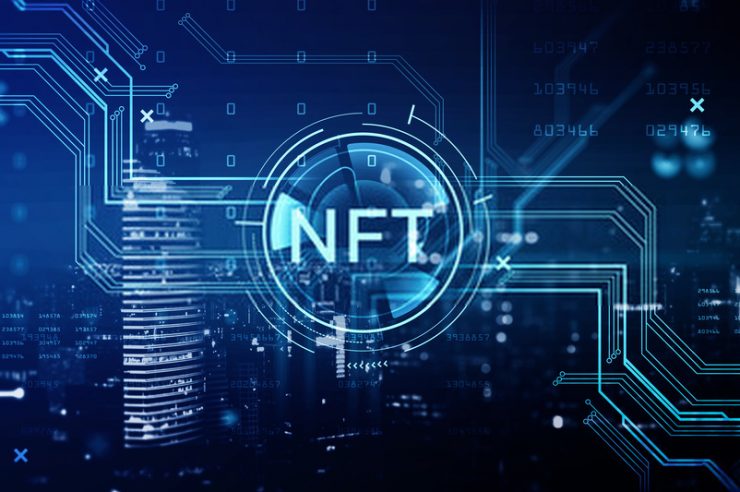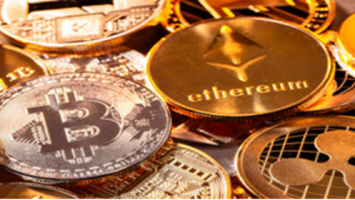Since the time when products backed by non-fungible tokens (NFTs) started generating a huge craze among the crypto community, the term “Marketplace” has been relevant yet again. In this case, these marketplaces (or websites) sold NFT-based products such as artwork, music, in-game assets, among others. The only thing that differentiates an NFT marketplace from a conventional e-commerce website (such as eBay) is that the former fully functions on a blockchain and mostly accepts only cryptocurrencies, which is not the case in the latter. Another big feature is that blockchains put decentralization as one of their core values to be withheld, which makes these marketplace platforms decentralized (Really?), which we will discuss later in the blog. In this blog, we will delve deeper into what NFT marketplaces are and something about the possibility of decentralized NFT marketplaces becoming functional.
Before We Go Deep, Know About an NFT Marketplace
An NFT marketplace is a portal where users can buy and sell various products backed by non-fungible tokens. For the end-user, the platform might look like another platform based on e-commerce, although the technology supporting these marketplaces is entirely different from other websites. Currently, there are more than 50 marketplaces that have been in existence though all of them are not super popular. NFT marketplaces can cater to a general audience or a specific audience based in a small environment. Some of the prominent general NFT marketplace platforms include OpenSea, Rarible, Solsea, and Binance NFT. Some of the popular genre-based marketplace portals include SuperRare, Nifty Gateway, Decentraland, and Sorare. While most of them accept only cryptocurrencies, some of them provide fiat gateways for buyers not accustomed to the crypto world.
Decentralization in NFT Marketplaces – An Overview
While discussing anything related to blockchain technology, the trilemma it possesses – Scalability, Security, and Decentralization, cannot be missed. But, when we discuss a marketplace platform selling NFTs, is the trilemma really solved? The answer might be yes and no. This is because most marketplace platforms are centralized as transactions are managed through an admin, and such marketplaces let the buyers know about this on their website. But, a few of them, including the popular OpenSea NFT marketplace platform, have declared themselves as decentralized.
But is decentralization fully achieved in such a so-called decentralized marketplace? The truth is no, as the venture behind the marketplace may sometimes involve when the situation gets complicated. This can really be seen in the case of Todd Kramer, an art gallery owner. The $2.2 million worth of artwork NFTs he bought and stored on the hot (online) wallet of the OpenSea portal was stolen by a hacker. On Kramer’s complaint, the marketplace venture had frozen the stolen assets. Although OpenSea proclaims itself to be a wholly decentralized marketplace, the action it took in this case made its users wonder about the access available to the portal’s developers. If OpenSea was truly decentralized, the venture might have either helped Kramer legally or rued about the loophole of the hot wallet and upgraded it in the future.
A lot of marketplaces – both general and niche-based allow peer-to-peer (P2P) trading though, which is in part the decentralization of marketplaces. Trading an NFT item between users without any involvement of an intermediary is the policy behind P2P trading, and allowing it proved to be a hit for the marketplace businesses. But, when a duplicate trade such as the above case of Todd Kramer occurs, it makes us question the amount of decentralization that is offered by the platform.
Can There be a Marketplace That is 100% Decentralized?
As newer blockchains come up and concepts such as sharding (partitioning blockchains to provide efficient transactions) come up along with improvements in the domain of decentralized finance (DeFi), the future looks promising. There is a possibility of a 100% decentralized NFT marketplace coming up, but only after a business owner decides to risk the reputation of their venture, even if they simply can reap profits. An NFT marketplace’s reputation would be under scrutiny only if a malicious incident occurred. Therefore, the developers of such a decentralized NFT marketplace portal must be upgrading the security features very often by collecting error reports from users with their consent.
Perhaps, someone who is planning to start a venture with an NFT marketplace can take some inspiration from the principles of the metaverse. Metaverse is theoretically a virtual world where people can exhibit their virtual versions and live a life. Current metaverse-based applications function more like games, which makes those platforms have some degree of centralization. But, as the virtual world concept takes flight in the future, metaverse might become the real P2P trading world, which is even impossible in the real world again. An NFT marketplace on such a metaverse ecosystem can prove to be a game-changer when it comes to decentralizing marketplaces where there is no interference in trades and admins can only go about security updates and reaping profits.
As an Ending Note
As we advance towards connecting the virtual and real worlds, decentralization might be a clashing point as achieving it in the physical world needs herculean efforts. However, the virtual worlds or metaverse absolutely welcomes the principle, and there are rays of hope that true decentralization can be achieved in every blockchain-based application. This includes decentralized marketplaces too, and it is too soon to judge anything in today’s world.
Apart from that if you want to know about NFT Music Marketplace then please visit our Digital marketing category



